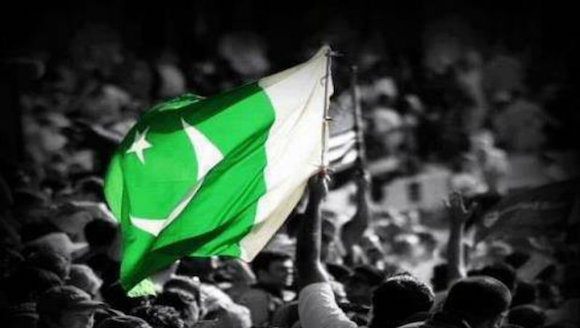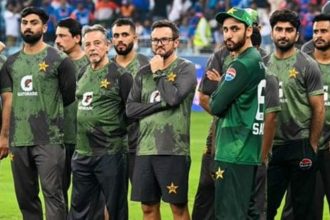Just a day before Pakistan celebrates its 68 years of independence, a sense of patriotism and fervour is growing among the nation as we look back on the struggles which gave us the Islamic Republic of Pakistan.
After all his efforts for the nation, Quaid-e-Azam Muhammad Ali Jinnah selflessly dedicated a portion of our flag to the minorities of Pakistan.
They may represent just a small part of this country, but dedicating their lives and leaving their homes to serve this country has made it what it is today.
This Independence Day, join hands with us as we pay tribute to a small part of the “White of Pakistani flag.”
Mrs. AS Nathaniel
Nathaniel served as Quaid-e-Azam Muhammad Ali Jinnah’s nurse in 1948 in Ziarat, Balochistan. She remained dedicated to her field for 42 years and retired in 1980. Famous for her humbleness and meritorious services, Nathaniel became a recipient of Tamgha-i-Imtiaz in 2000.
Ardeshir Cowasjee
A renowned columnist, philanthropist and social activist, Cowasjee strongly supported Jinnah’s ideology. Though known best for his bold articles, through the Cowasjee Foundation, he has funded the education of countless Pakistani students.
Cowasjee was laid to rest in November 2012 and as he had insisted, his funeral was open to followers of all faiths, thus albeit after his death, a sense of unity was seen when everyone regardless of their status in society came together to mourn him.
John Berchmans Conway, Aka Sister Berchmans
Sister John Berchmans Conway, Principal Convent of Jesus and Mary Karachi, in 2012 received Sitara Quaid-e-Azam for her services in the field of education and promoting interfaith harmony in Pakistan.
Having spent over 60 years teaching young girls from various parts of Pakistan, the 86-year-old has touched the lives of countless Pakistani schoolgirls as a mentor, counsellor, friend and teacher.
Iqbal Masih
A symbol of abusive child labour in developing countries, 13-year-old Masih was shot dead by unidentified assailants in 1995. Born in Lahore, Masih at the age of four was handed over to a carpet factory when his mother failed to pay back the loan she had taken from its owner.
At the age of 10, Masih was freed by the Bonded Labor Liberation Front after which he went to school and became an outspoken advocate for other child slaves. The young boy won the Reebok Human Rights Award in 1994 for his countless efforts to help free other children, falling into the hands of slavery.
Deepak Perwani
A leading Pakistani fashion designer, Deepak Perwani is renowned in the industry for his creative designs. Perwani owns a number of stores across the country while 17 stockists worldwide from London, Dubai, Houston, Washington DC, Hong Kong, Singapore and Toronto sell his brand.
Born in 1973, the fashion designer belongs to the Hindu Sindhi community and is considered as one of the originators of Islamic fashion week in Malaysia and is also in the Guinness book of world records for the largest kurta in the world.
Joseph Marie Anthony Cordeiro
Joseph Marie Anthony Cordeiro, the first Pakistani cardinal was born on 19th of January 1918, in Bombay, British India.
Cordeiro was ordained a priest in Karachi on 24 August 1946. Most people know him for his service as the Vice Principal of St Patrick’s High School.
Saleem Raza
A famous Pakistani singer who began his career in Lahore’s film industry with Qatil being his first film in 1955. However, he gained popularity with director Syed Ata Ullah Hashmi’s film Naukar in the same year.
Though Raza’s fame was short lived, his songs remain famous among the elderly.
Dr. Faridoon Sethna
One of the most respected and eminent gynecologists in Pakistan, Dr Faridoon Setna currently serves as the Chair and Medical Director of Concept Fertility Centre. Among his many patients was former prime minister Benazir Bhutto.
Danish Kaneria
Born in December 1980 in Karachi, the leg-spinner Danish Kaneria holds the record for most international wickets by any Pakistani spin bowler.
Kaneria took 276 international wickets and more than 1000 first-class ones, however he was banned for life by the ECB after allegedly being found guilty of corruption in a spot-fixing case.
Naveen Tajik
One of the finest television actresses of her time, Naveen Tajik is most famously known for a serial, Quratul Ain. After gaining popularity in the television industry, Tajik moved toward the film industry.
However, the most talked about lady of the 1970s ended her career when she decided to leave Pakistan for reasons unknown.
Byran Dinshawji Avari
Byram Dinshawji Avari, one of the most famous businessmen in Pakistani and twice Asian Games gold medalist, owns and operates the Avari Group of companies with his sons Dinshaw and Xerxes. He is also the diplomatic representative, for Canada.
Avari Group is the first Pakistani company to have obtained international hotel management contracts.
Louis J Pinto, Aka Gumby
Gumby, known for being the sole drummer of the Pakistani band, Noori, has not only gained popularity in the Paksitani music industry but also in some parts of Western Europe and North America.
He was lauded for his performance in Coke Studio as well as Nescafe Basement.
Major General (Retd) Kaizad Maneck Sopariwala
Major General (Retd) Kaizad Maneck Sopariwala was the first Parsi to obtain the position of a Major General in the Pakistan Army.
A 1986 graduate of US Army Command and Staff College, he was awarded Hilal-e-Imtiaz by former president Musharraf in 2002.
Benjamin Sisters
The voices behind the most patriotic songs in the 1980s, the Benjamin sisters, Nerissa, Beena and Shabana disbanded in 1987, at the height of their popularity, when Nerissa got married.
At a time when Zia’s Islamisation campaign was at its peak, these sisters from a minority community extolled nationalism in their beloved millie naghmay, capturing the nation’s heart in the process.
Famous for “Khayal Rakhna” and “Laila Laila,” the sisters were introduced to showbiz by Javed Allah Ditta, a notable sitar player and member of the PIA Academy.
Wing Commander Mervyn Leslie Middlecoat
Wing Commander Mervyn Leslie Middlecoat, a triple decorated war hero, shot down two Indian jets over Karachi during the 1965 war.
In December 1971, he crashed into the Gulf of Kutch but his body was not found. King Hussein of Jordan requested his funeral to have a Jordanian flag along with a Pakistani flag and regarded his death as a personal loss.
He was awarded Sitara-e-Jurat in 1965 and 1971 and Sitara-i-Basalat in 1971.






